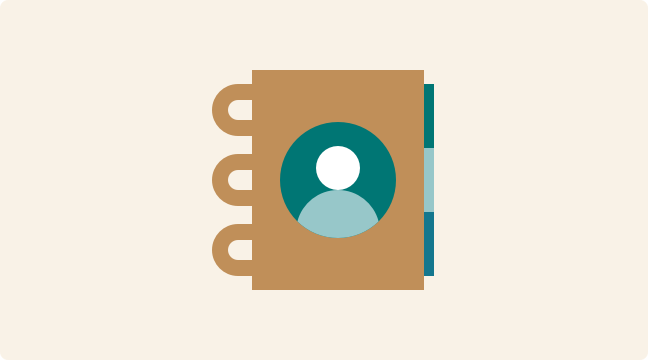May 13
COVID-19, Consciousness, Nightmares and Lucid Dreaming
Luigi Sciambarella and his training partner Thomas Hasenberger are lucid dreaming experts. They teach residential and online programs at Monroe and other venues. In this blog, Luigi suggests dreamwork techniques for harnessing the power of nightmares to prevail during these "interesting times."
To quote Joseph Chamberlain, “I think that you will all agree that we are living in most interesting times.”
That is an understatement! The COVID-19 situation has resulted in global shifts in the way we go about our daily lives, what we value and where we place our physical, mental and emotional priorities. I would like to compare this situation to dreamwork, and specifically, to nightmares.
Nightmares wrench our attention at a time when we are most vulnerable; when we are peacefully and unconsciously asleep and unable to protect ourselves.
Dreams have multiple functions and one of them is to deal with unfinished business. Things that remain unresolved in the daytime will become the bricks and mortar of your dream content. We know this intuitively – got a looming deadline? An important exam? A talk in front of a crowd of people? A date with someone you really like? Then you’re very likely to dream about situations that trigger similar feelings and emotions.
But most of the time, we forget our dreams, shrug them off or barely acknowledge them in casual chit-chat over coffee. Nightmares are no different in terms of structure but the emotional energy that they convey is much harder to ignore. Nightmares wrench our attention at a time when we are most vulnerable; when we are peacefully and unconsciously asleep and unable to protect ourselves.
It’s no surprise that COVID-19, the lockdown, the multiple and contradictory explanatory theories, and the lack of meaningful social and physical contact has led to a significant rise in disturbed sleep content. The usual strategy for escaping a nightmare scenario is to wake up (usually sweating, shaking and palpitating) but here, in the waking state, we are constantly reminded of this global, unfinished business.
Memory, focus and emotion regulation will improve with better quality sleep.
Through inner work, I have not had a nightmare for nearly two decades, and that inner work has helped me to develop mental tools and techniques to help others to resolve their nightmares and bad dreams. I have not had a nightmare or disturbed sleep during this crisis so I’d like to share a few insights that you may find useful.
Firstly, around 35% of Americans are sleep deprived. The current situation has meant that people are catching up on sleep debt and one of the effects of this is improved dream recall. As a general rule, if you sleep more, you’re more likely to dream and hence, recall more dream content. So, it may be that you were having disturbing dreams before this crisis but were simply not remembering them. Do continue to enjoy getting more rest because it offers tremendous physical, emotional and mental benefits.
It’s no surprise that almost every form of psychological disturbance has disturbed sleep as one of the symptoms. Routine is important, here. Establishing a regular sleep and wake-up time will mean that your deep sleep is consistently providing you with enough physical recovery and replenishment, and your dreaming is improving memory restructuring and creativity. Memory, focus and emotion regulation will improve with better quality sleep. You can enhance this process by making a deliberate effort to remember your dreams in the morning and writing them down in a notebook.
Dreams don’t attack you or judge you, they simply obtain your attention in whatever way they can in order to teach you something about your beliefs, values and habits … especially those that, in some way, limit your development.
Remembering your dreams is only part of the inner work process. Dreams are the unconscious mind’s way of holding up a mirror to the conscious mind; revealing to the dreamer any inner or outer world issues which have not been resolved. The reason for doing so is to benefit your individual, personal growth process. Dreams don’t attack you or judge you, they simply obtain your attention in whatever way they can in order to teach you something about your beliefs, values and habits … especially those that, in some way, limit your development. Nightmares are no different; they’re just very effective at gaining your attention!
The main problem is that we treat dream environments as if they were external environments. If you’ve ever told someone that you dreamt about them last night, you’ve mistaken your inner world for an outer one. Instead, you dreamt about yourself playing the role of that person. All parts of the dream: the people, objects, ground and sky, and your perspective within it are all you. This is a lesson which becomes very apparent through the practice of lucid dreaming in which you know you are dreaming while it’s occurring. In a lucid dream, you are conscious within the dream and can directly interact with it. But you can also go a step further and become every aspect of the dream, every perspective, every object and situation.
By identifying with all parts of the dream, you are less likely to perceive one part as being more or less positive/negative than another. They are simply different expressions of your total self. So, the monster in the dream chasing you becomes a story about one creature chasing another, and the lucid observer who is no longer directly emotionally involved can ask, “which part of me is chasing another for attention? What would happen if they had a conversation instead of avoiding each other? Can I dream a new scenario whereby that dialogue takes place?”
The process of accepting all parts of the dream as parts of your total self helps to cultivate inner trust and safety.
You don’t have to be a lucid dreamer to facilitate this process. When you wake up, you can sit in meditation and ask the same questions and use your imagination to change the dream content. For example, if you were to take the side of the nightmare figure, what would it want to say to you? How would you continue the dream from the point where it was interrupted when you awoke?
The process of accepting all parts of the dream as parts of your total self helps to cultivate inner trust and safety. If you can learn not to judge and reject parts of yourself, then you can trust that your dreams are trying to help you to grow. If you know that nothing in the dream can harm you because it is a part of you, then you can develop inner safety.
The audio exercise "Dream Sanctuary" is designed to facilitate the process of creating an inner space where you can feel completely safe and protected. Regardless of what is happening in the outer world, this inner refuge can help you to enter a calm and grounded center. This is further enhanced by empowering a part of your unconscious mind to provide you with assistance in the form of an inner adviser. Sometimes we find it difficult to trust our intuition in the face of competing and contradictory external messages, so this is a way of accessing that information so that you can re-establish trust with yourself.
Dreams are not a one-way flow of information but a conversation that you can have with your unconscious ...
Lastly, you will be invited to formulate a dream plan. If you have a dream which was in any way unsatisfying, then I would recommend reworking it in the planning stage. Otherwise, set the intention that you will dream about something which will help your growth process in some way that you can understand and integrate at this time. Dreams are not a one-way flow of information but a conversation that you can have with your unconscious whereby both conscious and unconscious elements work together for the betterment of the total self. So, whenever you can during the day and as you’re performing your bedtime routine … talk to yourself!
For more information about the programs and products mentioned in this article visit our programs section or the store.
Don't Wait! Sign up for Gateway Voyage today.
Learn MoreLuigi Sciambarella
Monroe Off-Campus Residential Trainer



